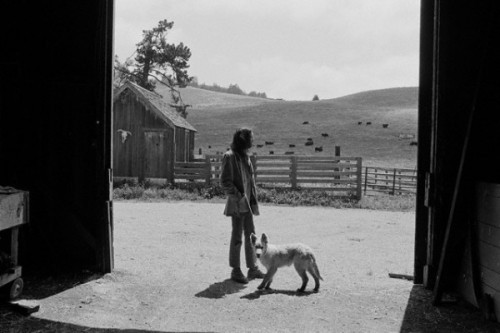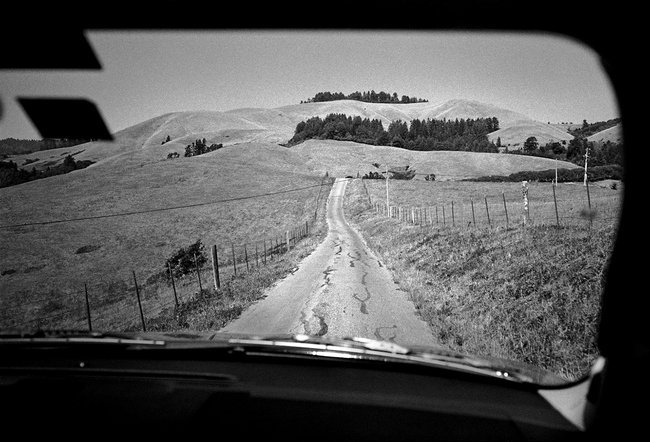Thinking about Neil Young and money
Above: Graeme Mitchell photo of Neil Young’s ranch (a.k.a. “Broken Arrow”) in California that accompanies David Carr’s great profile of Young.
>“For whatever you’re doing, for your creative juices, your geography’s got a hell of a lot to do with it,” he said. “You really have to be in a good place, and then you have to be either on your way there or on your way from there.”
With the money from his royalties and music industry success with CSN&Y, Young bought his ranch for $350,000 in 1970 at the age of 24. He wrote the song “Old Man” about it:
>About that time when I wrote (Heart of Gold), and I was touring, I had also – just, you know, being a rich hippie for the first time – I had purchased a ranch, and I still live there today. And there was a couple living on it that were the caretakers, an old gentleman named Louis Avila and his wife Clara. And there was this old blue Jeep there, and Louis took me for a ride in this blue Jeep. He gets me up there on the top side of the place, and there’s this lake up there that fed all the pastures, and he says, “Well, tell me, how does a young man like yourself have enough money to buy a place like this?” And I said, “Well, just lucky, Louie, just real lucky.” And he said, “Well, that’s the darndest thing I ever heard.” And I wrote this song for him.
When I was reading the Carr piece, I couldn’t help but think that such a career would be borderline impossible today. A lot is made of Neil Young’s winding career, his artistry, and his authenticity — how he’s stuck true to doing what he loves and what he’s interested in, regardless of the financial reward. There’s a kind of artistic purity that people love about him:
>I’m not here to sell things. That’s what other people do, I’m creating them. If it doesn’t work out, I’m sorry; I’m just doing what I do. You hired me to do what I do, not what you do. As long as people don’t tell me what to do, there will be no problem.
It’s an admirable ethos, but it’s one that could also land you on your ass out in the street. Luckily, he has his friend and manager, Elliot Roberts:
>Roberts handles Young’s business and artistic interests with a great deal of savvy, so Young is good at making money — which helps, because he is also good at making it go away. “I spend it all,” he said. “I like to employ people and make stuff. It will be my undoing.”
Young’s also had a helluva safety net set up since he was in his early 20s. He mentions in the piece when he ran out of the money he was able to sell off a bit of his 1,000 acre ranch. As Carr notes, “Money doesn’t seem to matter much to Young unless he is out of it.”
If his own money doesn’t matter much to him, the money of his fans does. Here’s Jonathan Demme:
>I saw Neil after a show and told him how amazing it was, and he said: ‘Well, it better be amazing. Those people out there paid a lot of money to be here.’ ”
(If Young isn’t a salesman, he is definitely a showman.)
I call these bits out not to slag Shakey (I love a lot of his music) but because I think it’s very easy for young (no pun intended) artists to look to giants like Neil Young and take their artistic ethos out of context — staying true to your visions and not worrying about money is great, but it often exists in the context of having other people around who can worry about it for you. In other words: money doesn’t matter when you have enough of it.
Filed under: Neil Young
[




 betzistar
betzistar